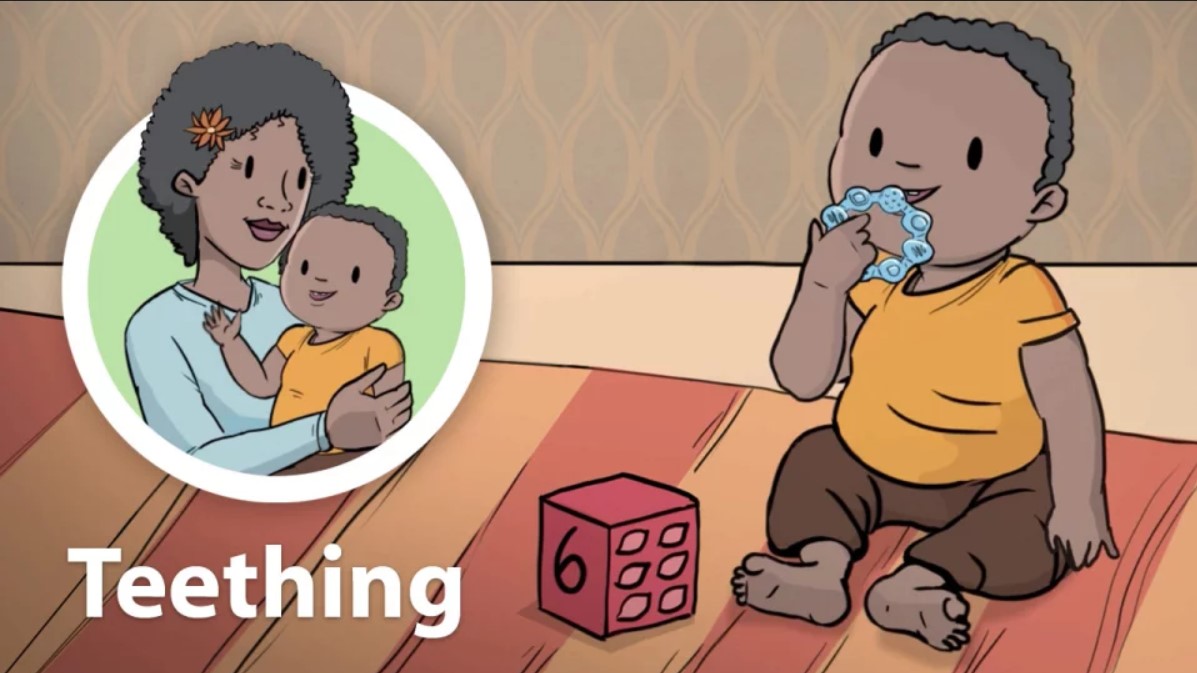Teething

Teething is when your baby’s first set of teeth breaks through the gum line. Normal teething should come between 4 and 7 months, although some will have to wait for up to 9 months. Even the happiest tots will become cranky and nagging during this phase, while others drool and want to chew on everything in sight.
A fussy baby going through teething can be hard to calm, but there are a few things that can ease the journey for you and your baby. Check out these tips.
Chilled rings and pacifiers
A teething ring is a toy that your baby can touch to the gums to relieve pain. A chilled ring is easy for the tiny fists to hold and offers the pressure needed to soothe the gums. However, do not freeze the ring, as this could bruise your baby’s delicate gums. Instead, place it in the refrigerator to make it cool. To avoid cavities, avoid dipping these items in sugary substances such as juice or formula.
Avoid liquid-filled teething rings because your baby chewing could easily break them, exposing a foreign fluid to your baby’s mouth. Also, some plastic rings can be breakable, which poses a choking hazard for your baby.
Use cold washcloths
Another popular way to soothe teething pain is to submerge a clean washcloth in water and giving it to your baby to chew. You can place it in the fridge for about 30 minutes. When it’s cold and stiff, just touch it to your baby’s gums or let your baby hold as they chew. Just remember that everything you give to your baby must not be a choking hazard. The washcloth should be too big to be swallowed, and you should keep an eye on what’s happening.
Over-the-counter medications
You can also ask your dentist whether to provide your child with the appropriate dose of infant ibuprofen or acetaminophen if your baby is older than 6 months. Although this should be your last resort when other methods don’t work, it can come in handy for teething pain relief. Avoid teething medicines that contain benzocaine which reduces oxygen amount in the blood.
Gum Massage
Your baby’s gum is sore, which explains the night-time fussiness. You can provide them some relief by carefully massaging the sore little gums. Applying the pressure on your baby’s gum counters the force from teeth, which feels soothing. Simply rub the gum lightly with your finger along the gums and watch them fall asleep. Ensure your hands are clean before touching their mouth.
Things to avoid for teething pain relief
- No rubbing medications on gums – never rub drugs like aspirin on your baby’s gum.
- Avoid alcohol – no amount of alcohol is safe for a baby, so it’s better to keep off that.
Bottom Line
Most of the time, all your teething child needs is a light massage along the gum line or something cold to chew on. But if that does not suffice and clearly look in pain, you might ask to get a prescription of pain relievers from the dentist.
What other interventions have worked for your baby?
